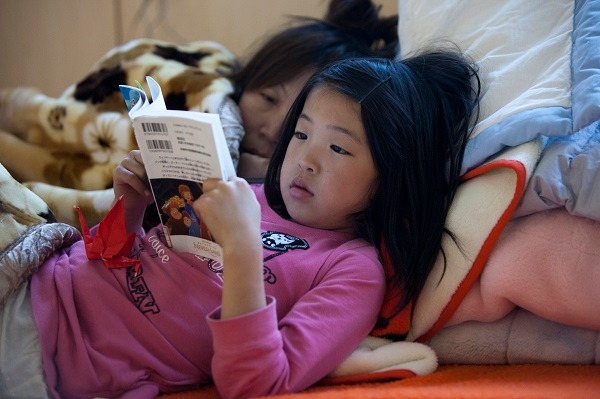‘My friend and I were working out how many more books we’ll read before we die,’ a customer said to me in the bookshop, the other day. ‘We read a book every couple of weeks, so we figured around 500.’
I rapidly did the maths. Twenty years. It seemed a little pessimistic for someone who can’t have been much older than fifty.
Those of you who feel inspired to do your own calculations might feel depressed by how few books you’ve got left, or overwhelmed by how many you’ve yet to read. At 29 years old, I’m not so far from the beginning of my reading life and it feels quite uncanny to force an endpoint on something that I think of as continuing far into the future. It feels, frankly, sad to think of all those books suddenly coming to an end. It conjures an image of a bookcase, gloriously full until about two-thirds of the way down, where the rows of spines abruptly give way to yawning emptiness, never to be filled.
Of course any number we come up with is ridiculous, for how can any of us possibly know how many books we will read? Without wanting to tempt fate, we might not be around for another twenty years, or even two. Something awful might happen tomorrow and then that would be it, you’d only have read another tenth of a book, not the 500 you’d anticipated. What matters aren’t the hundreds of books you’d like to read next, but the book you’re reading now.
This glimpse of the end has convinced me that every book you read should be read as though it might be your last, not your 500th last. Each book you read should be a book you love, or at least you really like. If the worst happened – heaven forbid – and I were to unexpectedly snuff it tomorrow, at least I’d be thinking about Elizabeth Von Arnim’s delightful The Enchanted April, perhaps smiling at her line about husbands being like macaroni. Small comfort, true, but I’d rather that than my final moments to be clouded by the impending doom of getting back to Samuel Richardson’s Clarissa. Life’s too short to let the pleasure of reading become a chore.
To put it bluntly, if you don’t like it, don’t read it. Give it up. Perhaps you should make yourself get to page 50 first, but then give it up.
People will disagree with your judgement, of course, but don’t feel that you’re wrong. Someone will inevitably love everything that you hate about a book, and vice versa. I know plenty of people who didn’t enjoy such critically acclaimed hits as Wolf Hall or The Hare with Amber Eyes. Why should these readers feel they have to stick it out to the end, suffering for months, shamefully whispering of their dissatisfaction? If you’re really struggling – even if a book’s had rave reviews, or all your friends have loved it – then where’s the harm in putting it down and picking up something else?
And yet, people tend to be appalled when someone admits to giving up on a book. It’s a literary faux pas. I can see their point that a book should be taken as a whole. Yes, perhaps a book has a slow start but a wonderful bit towards the end and so by giving up on it, you miss out on that moment of brilliance. But, chances are, your reading will have slowed down thanks to the drudgery – putting off going back to it, falling asleep after a couple of pages – so it would take you several weeks to get to that good bit. Why waste all that time essentially not reading, when there are so many other books in which you could be delighting? The weeks it would take you to reach the good bit are weeks during which you might have found all sorts of good bits in other books. Weeks that you won’t get back.
So I’m not sure why so many of us feel we must doggedly persist with every book we happen to pick up. Perhaps we want to conform and like the book that everyone else likes. Maybe it’s out of a sense of embarrassment, of not wanting to make a fuss, or some bizarre feeling of duty.
Readers, I tell you, rise up and liberate yourself from this crippling sense of obligation! There are so many books out there, and you definitely won’t be able to read all of them. You might have 500 left; you might have another 5,000; but then again you might have just another 5. We simply can’t know how many. The only thing we can do is make each book count.
Emily Rhodes blogs at Emily Books and tweets @emilybooksblog






Comments